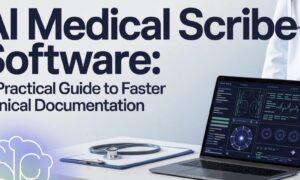A workplace injury can change your life in an instant. Whether you’ve suffered a physical injury, developed a mental health condition from prolonged stress, or experienced a serious accident on-site, the path to recovery is not just medical it’s legal and financial too.
In Queensland, the workers compensation system exists to support injured employees and help them return to health and meaningful work. But understanding how to access that support and ensure your rights are fully protected can be overwhelming. Many workers don’t know where to start, what benefits they are entitled to, or how to respond if their claim is delayed or rejected.
What Is Workers Compensation in Queensland?
Workers compensation is a form of insurance that provides financial and rehabilitation support to employees who are injured or become ill as a result of their work. In Queensland, this system is primarily managed through WorkCover Queensland, which handles most statutory claims, though some large employers are self-insured.
Under the Workers’ Compensation and Rehabilitation Act 2003, injured workers are eligible for compensation regardless of fault, meaning you don’t need to prove your employer did something wrong to make a claim. However, there are strict timeframes and procedures to follow.
Common Types of Work-Related Injuries and Conditions
Workplace injuries are not limited to high-risk industries. Employees across sectors can face a variety of health issues linked to their job. These may include:
- Slips, trips, and falls
- Repetitive strain injuries (RSI)
- Machinery-related injuries
- Exposure to toxic substances
- Psychological injuries due to bullying, harassment, or chronic stress
- Traffic accidents while performing work duties
Each of these injuries can entitle a worker to different forms of compensation and rehabilitation support.
Who Can Make a Workers Compensation Claim?
To be eligible to lodge a claim, you must:
- Be an employee under a contract of service
- Have suffered an injury that occurred at work, during work duties, or while travelling for work
- Report the injury to your employer as soon as possible (ideally within 30 days)
- Submit your claim to WorkCover within six months from the date of injury or diagnosis
Contract workers, apprentices, trainees, part-time and casual workers are also covered under the scheme in most cases. Even if you’re not sure whether your situation qualifies, it’s worth seeking early advice.
What Compensation Can You Receive?
The workers compensation scheme in Queensland provides access to various financial and medical supports depending on the severity of the injury and how long it takes to recover.
Some of the key workers compensation benefits available include:
- Weekly payments to replace lost wages
- Medical and hospital expenses
- Rehabilitation services such as physiotherapy or psychological support
- Travel costs related to treatment
- Lump sum payments for permanent impairment
- Return to work assistance and vocational retraining
All compensation is aimed at helping the injured worker recover and return to safe work duties where possible.
The Workers Compensation Claims Process
Navigating the claims process can feel daunting. It involves multiple steps and communications between you, your employer, the insurer, and your treating medical team.
Here’s a general overview of what happens:
- Report the injury: Notify your employer and document the incident.
- See a doctor: Your treating practitioner must complete a Work Capacity Certificate.
- Submit your claim: Lodge the application through WorkCover Queensland or your employer’s self-insurer.
- Wait for a decision: Claims are usually processed within 20 business days.
- Receive support: If approved, you’ll begin receiving weekly payments and treatment assistance.
- Work through recovery: As you recover, you may be offered light duties or adjusted roles.
- Closure or dispute: Your claim may be closed when treatment is complete or escalate if you disagree with a decision.
During this time, detailed records of your symptoms, work capacity, and communication with all parties should be maintained.
What If Your Claim Is Denied or Disputed?
Claim denials can happen for many reasons lack of medical evidence, delays in reporting, or disputes over whether the injury is truly work-related. This is often where legal support becomes essential.
Injured workers have a right to:
- Request a review of the insurer’s decision
- Appeal to the Workers’ Compensation Regulator
- Access mediation or legal dispute resolution
- Lodge a common law claim in certain cases
If your initial claim is rejected or your benefits are reduced unexpectedly, qualified legal professionals can help you understand your rights, gather further medical evidence, and advocate on your behalf.
Many injured workers in Queensland choose to speak with QLD workers compensation lawyers who specialize in these cases. These professionals understand both the legal and medical aspects of the system and ensure that no rights are overlooked.
Moving Statutory Compensation to Common Law Claims
In some cases, particularly where the injury was caused by employer negligence, you may be entitled to pursue a common law claim. This involves seeking damages for pain and suffering, future loss of earnings, or ongoing medical expenses.
To start a common law claim, a worker must:
- First go through the statutory claims process
- Receive a Notice of Assessment from WorkCover
- Obtain legal advice on whether negligence can be proven
Unlike statutory compensation, common law claims consider long-term consequences and often result in larger settlements but they require legal representation and proof of fault.
Returning to Work After an Injury
One of the goals of the workers compensation system is to support injured workers in returning to their job safely. Employers are obligated to provide suitable duties during recovery if available.
A return to work plan may involve:
- Modified hours or physical duties
- Worksite adjustments or aids
- Support from rehabilitation coordinators
- Regular medical reviews and progress updates
If your employer cannot accommodate you or your injury prevents you from returning, other options like vocational rehabilitation or retraining may be explored. These programs help you regain independence and transition into a new role if needed.
The Role of Employers and Insurers
Insurers including WorkCover or self-insurers are responsible for assessing the claim, arranging medical support, and issuing payments. If any part of this process breaks down, legal professionals may need to step in to resolve the issue and protect the worker’s rights.
Employers play a vital role in supporting injured workers through:
- Promptly reporting injuries to insurers
- Offering suitable duties during recovery
- Communicating respectfully and regularly
- Complying with their rehabilitation obligations
Why Legal Support Makes a Difference
The workers compensation system is designed to be accessible but real-life cases are rarely simple. Legal professionals specializing in work injury law help injured workers:
- Understand the full extent of their entitlements
- Avoid missed deadlines or procedural errors
- Challenge unfair decisions and secure backdated payments
- Prepare for medical assessments or disputes
- Navigate common law claims with clear guidance
Even if your claim has been accepted, consulting a specialist lawyer can ensure that nothing is left on the table. Especially in serious injury cases, securing the correct support now can make a lifelong difference.
Final Thoughts
No one goes to work expecting to get hurt but when it happens you deserve a system that works in your favor. Workers compensation is more than a payout, it is a pathway back to health and financial stability. Understanding your rights early and getting the right help can reduce stress, protect your income, and help you rebuild after an injury.
If you are dealing with a workplace injury and need support understanding your legal options, speak with experienced QLD workers compensation lawyers who know how to protect your interests. And if you are unsure what help is available to you, explore the full range of workers compensation benefits that may apply to your situation.
Your recovery is not just physical, it’s legal, financial, and emotional. With the right guidance, you do not have to face it alone.
Read More From Techbullion

































